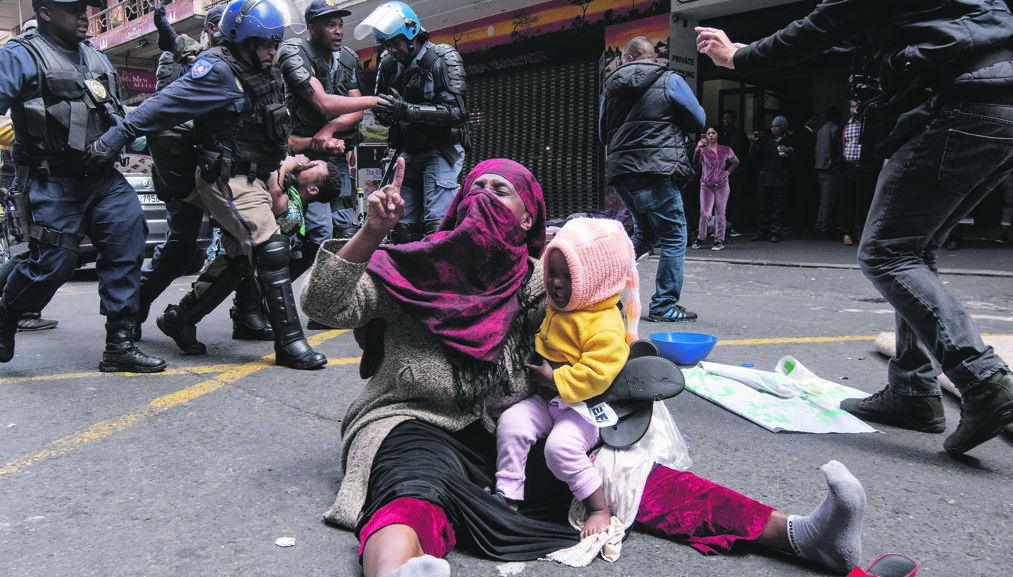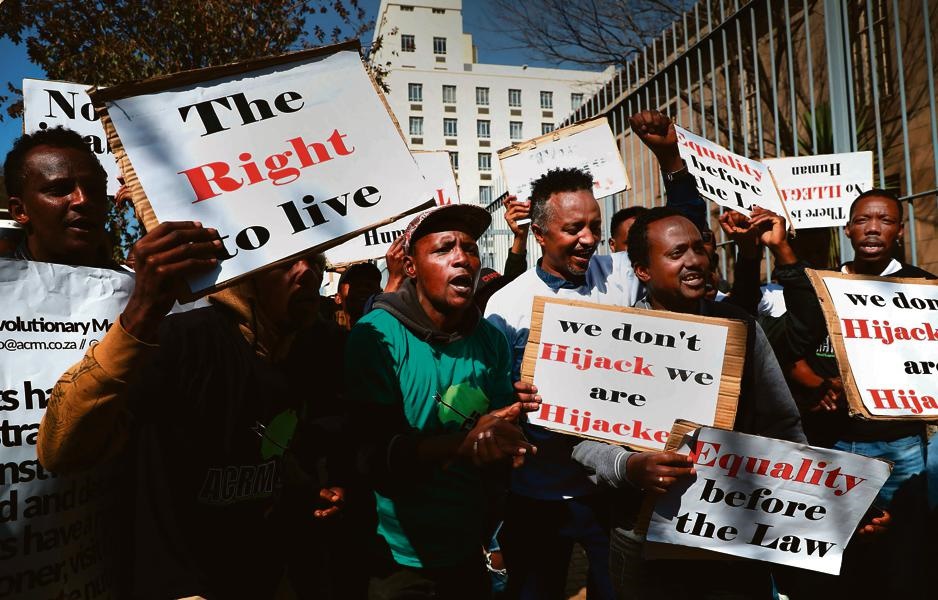
South Africa’s weak border controls are an indictment on a weak government with no plan, writes Maruping Phepheng
By the standards of their home countries, not all undocumented immigrants are poor.
This is because, arguably, the poor may lack the means needed to cross borders irregularly.
In spite of this, we still see cases where the impoverished take their chances in a quest to escape violence, conflict or poverty, or to seek better opportunities for their children.
It is on a variety of reasons that mobility from one’s country to another is predicated.
Some of this mobility results in irregular migration, a concept which refers to the migration of people into a country in contravention of its immigration laws.
It is also the continued stay of people without the legal rights to live in that country.
Over time we have seen intensifying perceptions that South Africans regard immigrants – mainly African immigrants – with mistrust, fright and rejection.
This has led to tensions that caused episodes of agonising violence, giving rise to adverse socioeconomic effects.
That said, I want to argue that in South Africa – perhaps elsewhere too – it is clear that the poor supervision of entry into the country contributes to the arrival of irregular immigrants who are largely from neighbouring states.
People in host countries, concerned about the potential depletion of limited resources if they were to share them with immigrants, fear the rise of the very same hostile conditions the immigrants fled from in their own countries – strife, hunger, economic and political disorders – if immigration gets out of hand.
This in itself is not a bad thing.
The trouble arises, as former Johannesburg mayor Herman Mashaba put it, when “our borders seem to exist only on maps”, and when “thousands of people stream through on a daily basis without encountering any form of law enforcement”.
To resolve social policy struggles many countries are facing, any self-respecting government needs proper border controls, whose main objective should not be to deny people entry.
Instead, it should create an environment which affords policymakers the ability to project and properly cost what government needs to do to fulfil its constitutional obligations to adequately provide basic amenities such as infrastructure, electricity, healthcare and education.
Also, any self-respecting government needs to manage immigration effectively and compassionately in the national interest while also advancing hospitable human mobility in a global sense.
It is important that people who need to leave their countries for whatever reason must not be denied that choice.
However, our government exacerbates the immigrants’ precarious situation by allowing conditions of irregular entry to obtain.
I am not arguing to absolve irregular immigrants from any guilt.
While it’s not their fault that our borders are intractably and perilously porous, they are nonetheless wrong to take advantage of the system.
But let’s admit it, the existence of weak border controls reveals a weak government.
Weak border controls are mainly the reason we have irregular immigrants, and consequently, the reason policymakers do not have reliable data to help them craft policies that will help avoid turning this country into a place of strife, hunger, and economic and political disorders.
The fact that some of the immigrants in South Africa are irregular and illegitimately benefiting off the back of the nation is an indictment on a government that makes irregular entry into the country possible through inadequate border controls.
Irregular immigrants benefit unfairly from the country’s limited resources because government allows it.
Through effective border controls, we will know who is in our country at any given point.
This knowledge will not only help policymakers plan better, it will also provide data so the policymakers are able to guide government suitably about the skills these immigrants bring, and how these skills can be exploited to advance the country and humanity at large.
The most ruthless part of weak border control, for me, is that above all it acts like a trap, a brutal ambush.
Imagine a young woman, a mother of two, who, because of hostilities at home, takes flight from her country.
For her, the prospects of crossing over to safety and prosperity are made even more irresistible by the knowledge that, although it will be tough to cross the border, entry is nevertheless possible.
So one night, with her two kids in tow, she heads for the nearest border.
Because she knows she has nothing of value to offer the border authorities, she walks into the night with the full knowledge that she will be raped in order to pass through the adjacent game park.
Read: Africa too divided to unite
And if the lions do not maul all three of them, they will enter the country of “milk and honey”.
By some miracle they succeed.
But because weak border controls made it possible, she and her innocent children are now irregular immigrants who are constantly retraumatised – by authorities and locals alike – in the land she thought would take away all their problems.
She is at the mercy of rapists or is turned into a sex slave by unscrupulous human traffickers. She is too scared to go to the police because if she does, they will deport her and her little ones.
The undocumented children are neither able to attend school nor to receive state social grants, and so without an education they grow up to be irregular immigrants.
We can blame crime and xenophobia where the cruel conflict between the locals and irregular immigrants is concerned, but my firm view is that a great part of it is all avoidable, if only government could clamp down on border officials’ willingness to be bribed by those seeking entry.
Phepheng is a social commentator and a published author
 | ||||||||||||||||||||||||||
Get in touchCity Press | ||||||||||||||||||||||||||
| ||||||||||||||||||||||||||
| Rise above the clutter | Choose your news | City Press in your inbox | ||||||||||||||||||||||||||
| City Press is an agenda-setting South African news brand that publishes across platforms. Its flagship print edition is distributed on a Sunday. |




 Publications
Publications
 Partners
Partners









